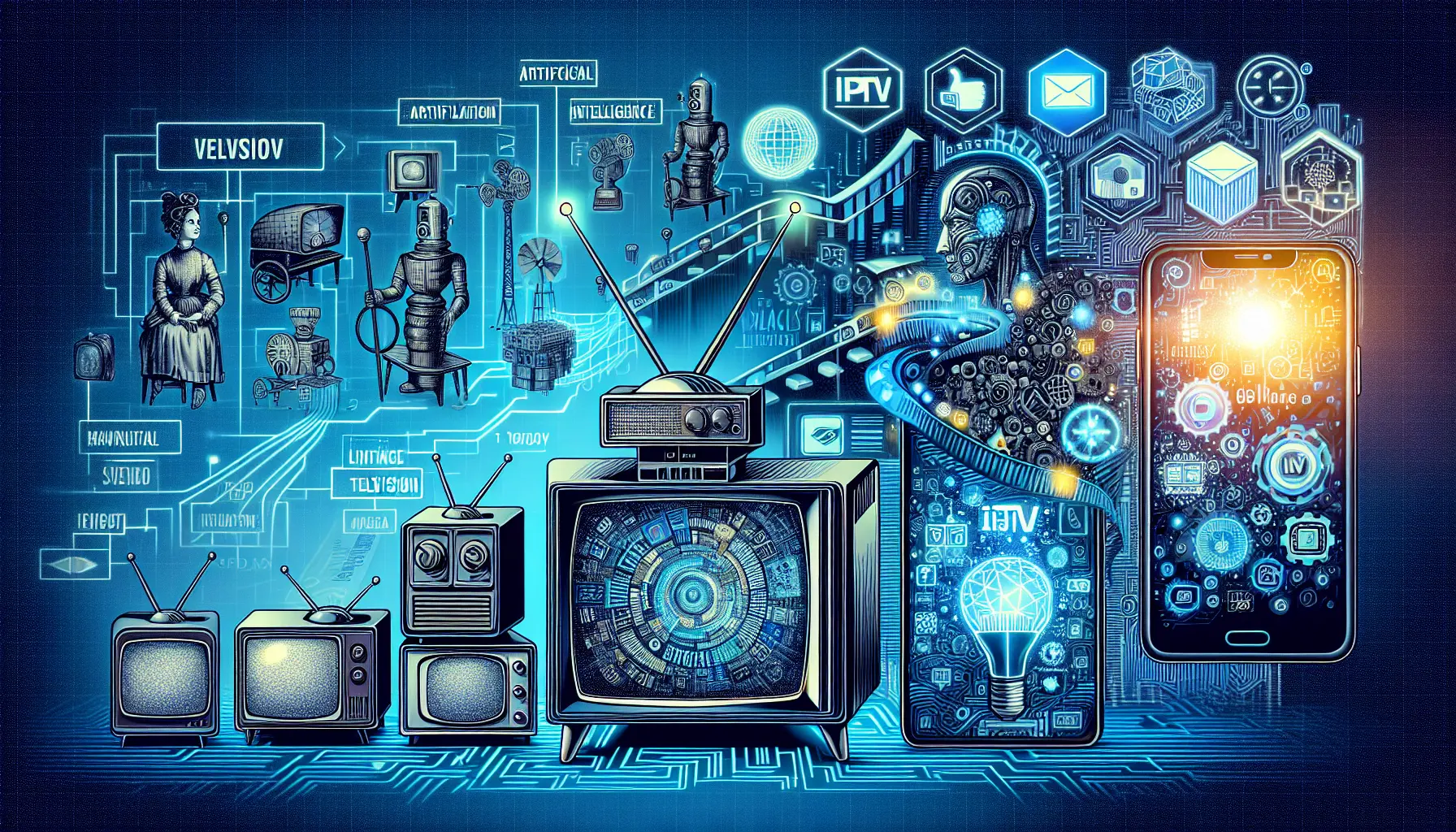
Estimated reading time: 8 minutes
Key Takeaways
- IPTV Basics: IPTV delivers content via internet protocols, ensuring high-quality viewing experiences.
- Types of Services: IPTV includes live television, video on demand, and time-shifted content.
- Benefits: Greater control, multi-device access, and interactive features set IPTV apart from traditional TV.
- Future Developments: Expect AI integration, enhanced features, and expanded mobile capabilities in IPTV.
Table of Contents
Understanding IPTV: The Basics
IPTV (Internet Protocol Television) delivers television programming through internet networks instead of traditional cable or satellite systems. Think of it as TV content traveling through the same technology that brings you websites and email, but with guaranteed service quality and reliability.
Unlike regular streaming services, IPTV operates on managed networks, ensuring consistent performance and superior viewing experiences. This system represents a fundamental shift from scheduled broadcasting to user-controlled content delivery. Learn more on Wikipedia.
How Does IPTV Work?
IPTV functions through a sophisticated system of content delivery using internet protocols. Here’s the process simplified:
- Content providers send their programming to IPTV service operators.
- The video content gets encoded into IP format.
- Servers distribute the content through managed networks.
- Users receive content via set-top boxes or compatible devices.
Learn more about setting up your IPTV service here: IPTV Setup Guide.
Different protocols are used for various content types:
- IGMP protocol handles live TV broadcasts.
- RTSP manages on-demand video streaming.
- HTTP/RTMP provides alternative streaming methods.
More details can be found on TechTarget.
Types of IPTV Services
IPTV offers three main service categories:
1. Live Television
Similar to traditional TV but delivered through IP networks. Users can watch programs in real-time with interactive features like program guides.
2. Video on Demand (VOD)
Access to a vast library of content available anytime. Users can start, stop, and resume viewing at their convenience.
3. Time-Shifted Content
Catch up on recently aired programs through features like replay TV and digital recording capabilities.
To explore IPTV services with US channels, check here: US IPTV Guide.
For additional information, visit Vidovation.
Benefits of IPTV Over Traditional TV
IPTV offers numerous advantages over traditional television:
- Greater Control: Watch what you want, when you want.
- Multi-Device Access: View content on TVs, computers, tablets, or phones.
- Interactive Features: Enhanced program guides, search functions, and personalized recommendations.
- Superior Quality: Managed networks ensure stable, high-quality streaming.
For more information on affordable IPTV subscriptions, visit: Affordable IPTV Guide.
Learn more at Oxagile.
IPTV vs. Traditional Broadcasting
Key differences between IPTV and conventional TV:
- Content Delivery: IPTV uses internet protocols; traditional TV relies on radio frequency broadcasts.
- Viewing Options: IPTV offers on-demand viewing; traditional TV follows fixed schedules.
- Interaction Level: IPTV enables two-way communication; traditional TV provides one-way broadcasting.
- Device Compatibility: IPTV works across multiple devices; traditional TV requires specific equipment.
Real-World Applications
IPTV serves various sectors:
Home Entertainment
Residential users enjoy comprehensive entertainment packages with internet and phone services bundled together.
Business Solutions
Hotels and corporations use IPTV for:
- Guest entertainment systems
- Internal communications
- Training programs
For a detailed implementation guide, see: Business IPTV Guide.
Educational Institutions
Schools and universities implement IPTV for:
- Distance learning
- Campus-wide announcements
- Educational content distribution
More information can be found at OTC Academics.
The Future of Television
IPTV technology continues to evolve with:
- Integration of artificial intelligence for personalized viewing recommendations.
- Enhanced interactive features and social media integration.
- Support for higher resolution formats and improved streaming quality.
- Expanded mobile viewing capabilities.
As internet infrastructure improves globally, IPTV adoption is likely to increase, offering more sophisticated and personalized viewing experiences. For the latest updates, refer to: IPTV News.
Frequently Asked Questions
What is IPTV?
IPTV stands for Internet Protocol Television, which is a method of delivering television programming over internet networks.
What are the main advantages of IPTV?
The main advantages include user control, content availability on multiple devices, and enhanced features for searching and navigating content.
Can IPTV replace traditional TV?
Yes, IPTV can replace traditional TV services as it offers similar, if not more, features and greater flexibility for users.
Is IPTV legal?
The legality of IPTV depends on the service being used. Always ensure you are using a legitimate IPTV provider.
How can I improve my IPTV experience?
To improve your IPTV experience, ensure that you have a stable internet connection, choose reputable IPTV providers, and explore various features offered by different services.



